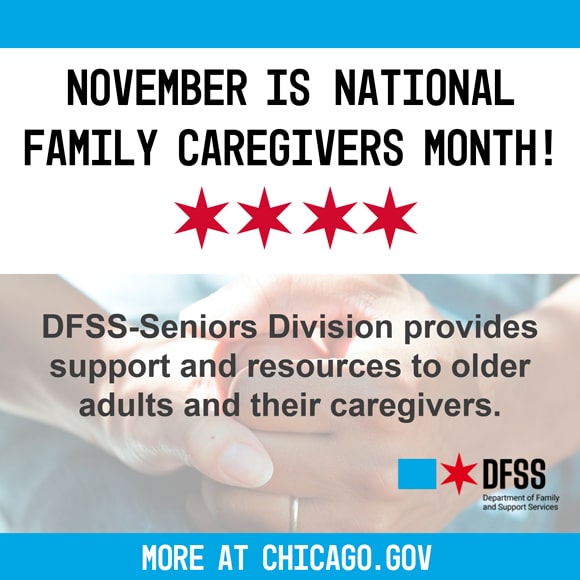How abortion bans are reshaping medical training and practices
Fact checked by Jim Lacy
The U.S. Supreme Court’s ruling on Dobbs v. Jackson Women’s Health Organization in 2022 paved the way for states to ban abortion. On the day of the June ruling, Wisconsin’s four abortion clinics closed their doors.
Yet, it wasn’t only the clinics that shut down. In Wisconsin, while patients lost access to a crucial healthcare service, obstetrics and gynecology medical residents lost access to abortion training required by the Accreditation Council for Graduate Medical Education. They couldn’t gain the experience and skills to care for patients who require uterine evacuation, whether the procedure is done as part of induced-abortion care or miscarriage management, according to a 2024 article in The New England Journal of Medicine.
“Our residents rightly worried about how they were going to acquire the requisite clinical skills to provide comprehensive abortion, miscarriage, and other obstetrical care. They also expressed distress over the fact they were learning to care for patients not based on evidence-based medicine and guidelines but rather based on concerns about what kind of healthcare was legal,” says Abigail Cutler, MD, an obstetrician-gynecologist and assistant professor at the University of Wisconsin School of Medicine and Public Health, who practices at UW Health.
The fall of Roe brought forth a Wisconsin state law from 1849, which made abortion a felony unless performed to save the mother’s life. In the year following the 2022 ruling, Cutler says, “Most patients in need of abortion had to travel out of state for care, and residents had to leave the state to obtain their required training.”
The Supreme Court decision forces medical residents to consider where they’ll be able to complete their residencies. Obstetrics and gynecology (OB-GYN) residency programs in states where training is restricted or banned have had to find other places to train their residents. The bans are even causing some residents to choose specialties other than OB-GYN.
The OB-GYN residency program at UW Health saw an 8% decrease in the number of residency applicants between 2022 and 2023, and a 15% decrease from 2023 to 2024, Cutler says. “It’s impossible to know for sure whether this trend has anything to do with the Dobbs decision and its impact on abortion access and training in Wisconsin, but many applicants over these past two interview cycles have asked about the state’s 1849 abortion ban,” she says. “We know the issue is top-of-mind for most medical students applying into OB-GYN, and that many are considering state restrictions when making decisions about where they want to train.”
Training out-of-state
To provide UW Health OB-GYN residents access to abortion training, Cutler and her team created a training partnership with an academic medical center in Chicago. This partnership enabled their residency program to maintain compliance with the requirements for an accredited program per the national accrediting body, the Accreditation Council for Graduate Medical Education.
While the partnership has been incredibly successful, Cutler says it has come with challenges and costs for all parties. The process required commitments from the partnering medical center and residents, coverage for salaries and benefits during out-of-state rotations, temporary housing, and Illinois medical licenses.
“Meanwhile, our partners have worked tirelessly to train additional residents on top of their own, all while facing huge influxes of patients from abortion-restricted states seeking reproductive healthcare,” Cutler says.
“The more doctors who leave a state because of these restrictions, the fewer providers will be available to care for patients in need of all types of healthcare.”
Non-profit organizations such as Repro TLC, formerly Midwest Access Project (MAP), in Chicago, have been connecting healthcare providers, including residents, midwives, and advanced practice clinicians, with access to comprehensive reproductive health training nationwide. Repro TLC saw an increase in applications by 150% shortly after the Dobbs decision, with applications continuing to rise.
“Our mission is about improving access to comprehensive repro[ductive] healthcare, specifically by training providers in abortion, miscarriage care, contraception, and pregnancy options counseling,” says Ramey Connelly, director of individual clinical training for Repro TLC. “Our individual clinical training, or ICT program, is an innovative training model that helps to fill gaps nationwide in medical education and clinical education and training.”
Maternal care deserts
As of January 2025, 41 states have abortion bans in effect, and among them, 12 states have a total abortion ban, according to the Guttmacher Institute, a non-profit research and policy organization committed to advancing sexual and reproductive health and rights worldwide.
“For too many families across the U.S., the ability to have a healthy pregnancy depends on where they live,” March of Dimes Chief Medical Officer Amanda Williams, MD, shared in a press release.
And despite new laws requiring people to carry pregnancies to term, maternity care is still not prioritized in the U.S., according to a 2024 March of Dimes report. Since the previous national report in 2022, 100 counties experienced a decline in maternity care access, and more than 100 hospitals closed their obstetric units. These closures have led to delays in accessing emergency care and forced families to travel farther for critical maternity care.
More than one-third of U.S. counties are now classified as maternity care deserts — areas with no birthing facilities or obstetric clinicians. North Dakota, South Dakota, Alaska, Oklahoma, and Nebraska have the highest percentage of counties with no access to maternity care.
Maternal care deserts directly impact the people who live in these areas — including the physicians who choose to practice there. And when doctors avoid places where they themselves can’t access healthcare, this further contributes to healthcare shortages.
“Many doctors in training, to say nothing of doctors in practice, are themselves of reproductive age and may not choose to live in a state where their own ability to access comprehensive healthcare is restricted,” Cutler says. “The more doctors who leave a state because of these restrictions, the fewer providers will be available to care for patients in need of all types of healthcare.”
Ripple effect for primary care
OB-GYNs aren’t the only physicians who see patients needing comprehensive reproductive healthcare services. Family medicine physicians often provide routine reproductive healthcare services including Pap smears, contraception, and abortions, in a primary care setting.
When Debra Stulberg, MD, was a family medicine resident in Chicago, none of the family medicine residencies offered abortion training as part of their routine curriculum. Yet, she felt strongly that someday, some of her patients might need abortion services — and she wanted to be able to care for them. She sought out training but knows that option isn’t possible for many residents, especially with time and money constraints.
Today, Stulberg, chair of the department of Family Medicine at University of Chicago Medicine, specializes in women’s health and family planning. She’s also on the board of directors of Repro TLC and an advocate for helping residents and other healthcare providers get the access they need to provide comprehensive healthcare services to their patients.
She has watched the ripple effect of states’ restrictive abortion bans stretch to medications, such as mifepristone. Prescribing the medication, which is FDA-approved to terminate pregnancy up to 10 weeks, can be grounds for revoking one’s medical license in states that restrict or ban abortions.
“I think there’s a severe chilling effect,” Stulberg says. “If [providers] are trained and they have the ability to provide the medication, they may choose not to because they are worried. They’ll be under severe scrutiny and worried for good reason, based on the experiences of other providers and patients, that they will be accused of doing something illegal and their license threatened, or they could be threatened with criminal penalties.”
This scenario has begun playing out already. In December, the Texas Attorney General filed a lawsuit against a New York doctor for prescribing abortion pills to a woman near Dallas. The lawsuit accuses the doctor of violating Texas law by providing the drugs to a Texas patient.In 2022, soon after the Dobbs decision, a 28-year-old from Georgia died in an Atlanta-area hospital when doctors delayed providing a routine dilation and curettage procedure, or D&C. According to a ProPublica investigation, the state of Georgia had made performing the procedure a felony, with few exceptions, and a doctor who violated the law could be prosecuted. Experts who reviewed the patient’s case, including 10 doctors, deemed her death “preventable.”
Facing moral distress
Beyond the fear of legal and professional reprisal, recent studies suggest that OB-GYN residents who train in abortion-restricted settings are at high risk for moral distress — the anguish doctors experience when they know how to help a patient but cannot because of external forces.
Deborah Spitz, MD, is a psychiatrist at UChicago Medicine. Before Roe v. Wade, she remembers when women needed a psychiatrist to sign off on whether or not they were “depressed enough” to get an abortion. “That was one of the exceptions under the law,” Spitz says. “You could get an abortion if you were suicidal.”
She says that medical residents now must be more aware politically than ever before. Not only must they be mindful of laws that could affect them personally as well as their patients, but there is the added challenge of states like Georgia and Idaho disbanding their Maternal Mortality Review Committee, which tracks critical maternal death data. Idaho reinstated its review committee in late 2024.
The public needs that data to understand and make decisions about these policies. In the meantime, Spitz says, the women who are directly impacted are struggling.
While Cutler appreciates Illinois meeting the needs of OB-GYN medical residents, she says these partnerships cannot be the sole solution to the country’s healthcare access challenge. “How do we train a future generation of OB-GYNs and physicians in comprehensive reproductive healthcare when our ability to do so is tied to the outcomes of political winds and elections?”
In her view, physicians — not politicians — know what their patients need. “We must all work to reverse abortion restrictions in our own settings,” Cutler says. “Our patients and future workforce is counting on it.”
For now, at least, she plans to stay in Wisconsin to serve her community, medical residents, and patients as best she can.
Originally published in the Spring/Summer 2025 print issue.

Megy Karydes’ specialties include health, food, architecture and social justice. She’s an adjunct professor at Johns Hopkins University.













